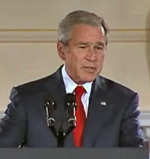 The U.S. Attorney for the District of Columbia issued a press release today on charges filed against Platte River Associates in Boulder, Colorado, for violating the U.S. embargo on trade with Cuba. A copy of the criminal information detailing the charges is not yet available, and the press release raises as many questions as it answers.
The U.S. Attorney for the District of Columbia issued a press release today on charges filed against Platte River Associates in Boulder, Colorado, for violating the U.S. embargo on trade with Cuba. A copy of the criminal information detailing the charges is not yet available, and the press release raises as many questions as it answers.
According to the press release:
[Platte River] provided specialized technical computer software and computer training, which was then used to create a model for the potential exploration and development of oil and gas within the territorial waters of Cuba, without first having obtained a license from the Secretary of the Treasury.
No further information is provided relating to the substance of the charges, but the description provided here doesn’t really state all the elements of a violation. It seems unlikely, based on the language in the press release, that the training was provided to Cuban nationals or the Cuban government. Likely it was provided to nationals of other countries such as China, which is indeed involved in efforts to exploit Cuba’s offshore oil reserves. Even then, providing that software so that potential exploration can be modeled doesn’t violate the embargo until the software is used for actual exploration and then only if Platte had knowledge that the software would be used for those purposes.
The criminal information, when available, will likely provide enough information to evaluate the charges more fully, but, at the moment, not everything adds up. Once the criminal information is available, we will update this post.

 Posted by
Posted by  Category:
Category: 

 An
An  The New York Times has a
The New York Times has a 
 President Bush
President Bush 

